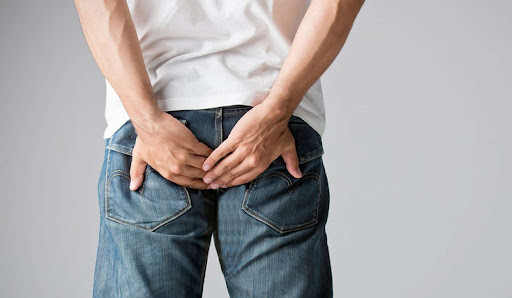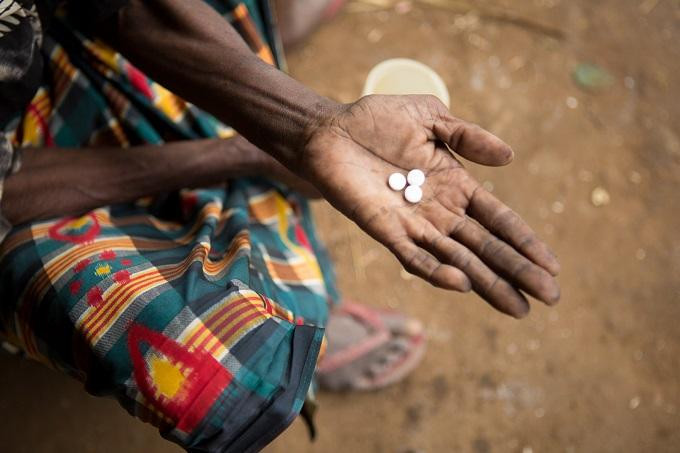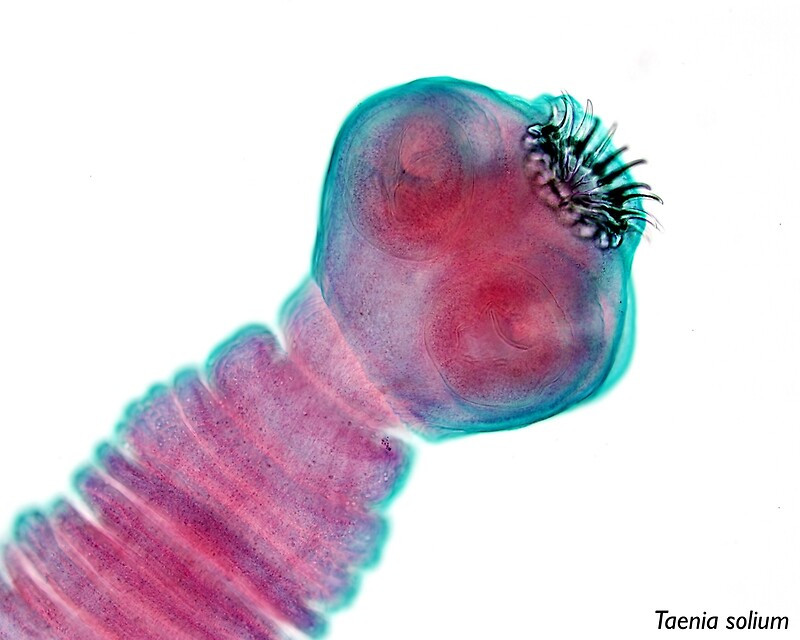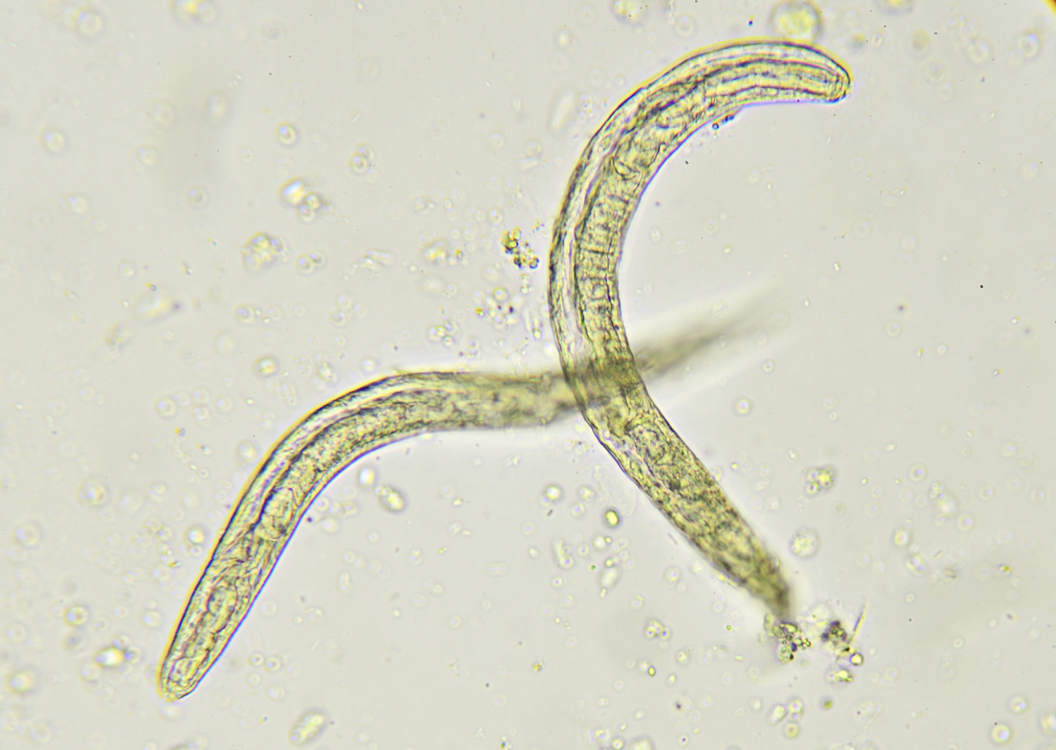Definition
Enterobius vermicularis, also known as the pinworm, causes enterobiasis. This condition is more commonly found in children. Infection occurs when fertilized pinworm eggs are ingested. This process typically happens through contaminated hands, contaminated food, or inhaling air that contains pinworm eggs.
Causes
The Enterobius vermicularis worm, which is very small and measures between 0.6 and 1.3 cm, causes enterobiasis. The size of the eggs is only 50–60 microns. This small size makes it easy for the infection to occur. The infection occurs through:
- Direct contact with the eggs
Pinworm eggs can adhere to the surface of an object for up to 3 weeks. If someone touches a contaminated object, the eggs can stick to their hands and remain viable for a few hours. Infection occurs when the eggs are inadvertently ingested by entering the mouth during eating. In children, the eggs can also be introduced into the mouth when they put their hands in their mouths while biting their nails, sucking their thumbs, or placing toys in their mouths.
- Inhaling the eggs
Worm eggs can also enter the body through the nose. This typically occurs when contaminated objects like towels or clothes are shaken or waved, causing the eggs to become airborne and potentially inhaled when someone breathes.
- Auto-infection
Pinworm eggs around the anus can cause itchiness. If the affected person scratches the itch, there is a risk of getting eggs on their fingers. If proper hand hygiene is not maintained, the eggs can be transferred back to the individual, leading to autoinfection or repeated infection.
After the eggs are swallowed or inhaled, the larvae will hatch and grow into adult worms in the large intestine. When a female worm becomes pregnant, it moves to the rectal area to lay its eggs. The hatched eggs then move from the anus to the large intestine. This process can cause the affected individual to experience a sensation of itchiness in the anal area. The itchy feeling typically occurs at night, disrupting their sleep and causing weakness.
Children are more susceptible to infection because they often play in places filled with dirt or dust, which may be contaminated with nests of eggs. The wind can quickly disperse worm eggs in the dust, which makes swallowing or inhaling them simpler. Adults can also be infected similarly or through contact with other affected individuals. The spread is more likely within a family or communal living environment, such as dormitories.
Risk Factor
Risk factors that can increase the likelihood of a pinworm infection include:
- Age: Pinworm infections are more common in children, typically between the ages of 5 and 10.
- Living in crowded and unsanitary areas.
- Having close contact with someone infected by pinworms.
- Habits such as sucking their thumb or biting their nails.
- Inadequate hand hygiene practices
Symptoms
In some cases, pinworm infection may exhibit no symptoms, but symptoms can manifest when the number of worms in the large intestine is substantial. These symptoms include:
- Itching in the anal or vaginal area, especially at night, causes sleep disturbances
- Bruxism leads to unconscious teeth-grinding
- Irritability or difficulty concentrating due to itching
- Abdominal pain
- Low appetite and weight loss
- Nausea and vomiting
- Diarrhea
- Bedwetting
- Pain while urinating
- Redness or sores in the anal area due to scratching
Diagnosis
To confirm the diagnosis of pinworm infection, a comprehensive assessment involves history-taking or anamnesis, physical examination, and additional examinations. The history-taking process includes inquiring about:
- Symptoms, especially those experienced by the affected individual, particularly at night
- Patient's habits that may contribute to the transmission or development of the infection
- The affected individual's living area and living conditions
The doctor conducts a general physical examination with a focus on the region around the anus. An additional examination method involves the use of a special adhesive tape to collect samples (Scotch Tape Test)
Scotch Tape Test
The affected individual may be asked to apply adhesive tape to the skin around the anus in the morning, after waking up, and before cleaning themselves. This tape helps collect potential worm eggs in the anal area, which can then be examined under a microscope. This test should be performed for three consecutive days to ensure accurate results.
Management
Doctors will prescribe treatment based on the symptoms and the individual's health. The principles of pinworm treatment aim to remove the pinworms, alleviate symptoms, and prevent complications. The treatment options include:
- Adopting a healthy and clean lifestyle
- Anti-worm drugs such as mebendazole, pyrantel pamoate, and albendazole can kill or paralyze the worms. Typically, the patient requires at least two doses to eliminate the pinworms.
- Symptom-specific medication: Medications may be prescribed to reduce itching, pain, and inflammation
Complications
Pinworm infections seldom cause complications or serious medical problems. Nevertheless, complications can still occur if the infection is not treated.
In children, the itchy feeling due to the eggs in the anus can reduce concentration and cause irritability and restlessness.
In women, pinworms that are breeding can spread from the anus to the vagina, cervix, fallopian tubes, and organs around the hips. This can lead to inflammation of the vagina (vaginitis), cervical wall (endometritis), and fallopian tubes (salpingitis)."
Other common complications that can occur due to a pinworm infection include:
- Weight loss
- Eczema or bacterial infection in the rectal or anal area
- Appendicitis
- Inner abdominal infection (peritonitis)
- Urinary tract infection (urethritis)
- Abscess in the fallopian tube and ovary
Prevention
Some ways to prevent and stop the spread of pinworm infection include:
- Always wash hands with water and soap after using the toilet/bathroom, changing diapers, and before eating
- Keep your nails short and maintain good nail hygiene
- Avoid the habit of sucking fingers and biting nails
- Do not share personal items like towels, clothes, and toothbrushes
- Change clothes daily and regularly change bed sheets
- Wash sheets, clothes, towels, or other items with warm water and dry them in direct sunlight
- Clean all surfaces in the home regularly
- Allow sunlight into the house to help kill pinworm eggs on surfaces
- Maintain cleanliness in the home and its surroundings
- Avoid anal sex
When to see a doctor?
Pinworm infection is easy to manage if diagnosed, but delayed treatment can lead to more severe infections and recurrence. Therefore, it is recommended to see a doctor if you experience symptoms unique to pinworm infection, such as itching in the anus at night.
Want to know more information about other diseases? Click here!
- dr Ayu Munawaroh, MKK
Cleveland Clinic (2019). Disease & Conditions. Pinworms.
Mayo Clinic (2020). Diseases & Conditions. Pinworm infection
WebMD (2020). Pinworm Infection.
Medscape (2019). Pinworm (Enterobiasis).
Centers for Disease Control and Prevention (2020). Parasites – Enterobiasis (Also Known as Pinworm Infection).











